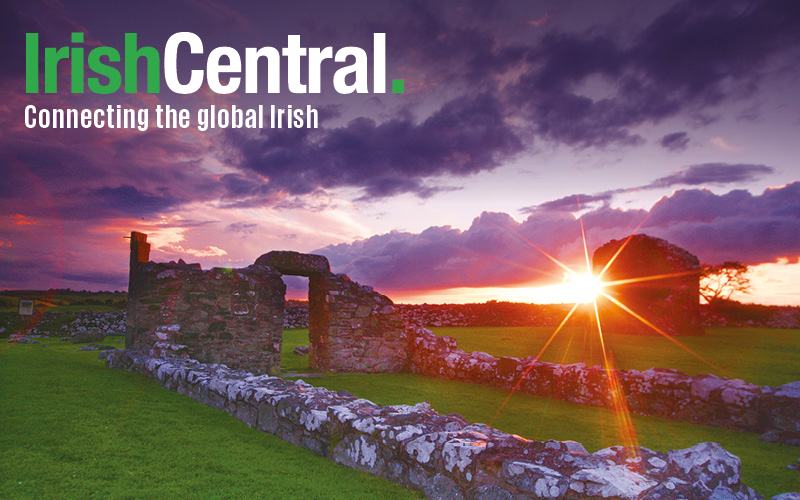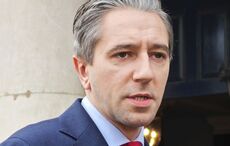The leader of Fine Gael, Enda Kenny, and his Fianna Fáil counterpart, Micheál Martin, held talks last night on the options for government. This is unprecedented in Irish political history and the two leaders are due to meet again today.
It is understood that only a note-taker was present with the two men and that the room where the talks took place was deliberately chosen for its symbolic location between Government Buildings and Leinster House.
The meeting is said to have lasted between 45 minutes and an hour and that Kenny offered Martin a full partnership government involving the two parties and Independents.
Fianna Fáil confirmed that Kenny had offered Martin a coalition government with Fine Gael and Independents. The Fianna Fáil leader will be discussing this and other options with his parliamentary party in the morning.
Following the meeting, Fine Gael issued a statement that read:
“This evening the Taoiseach Enda Kenny and the Leader of Fianna Fáil Micheal Martin had a positive and constructive meeting during which they discussed the current political situation and options for the formation of a stable and lasting Government.
“The Taoiseach made a formal offer for the formation of a full partnership Government including Fine Gael, Independents and Fianna Fail which would have the potential to provide a stable and lasting government. The Taoiseach and the Fianna Fail Leader have agreed to meet again tomorrow for further discussions.”
Their meeting followed the failure of either party leader to secure sufficient votes to become head of government. Dáil Éireann, the main house of the Irish parliament, voted against Kenny by 80 votes to 51 while Martin was defeated by 95 votes to 43, with socialist candidate Ruth Coppinger losing by 108 votes to 10.
Ahead of the vote, Fine Gael and Fianna Fáil were involved in separate talks with Independent members of the Dáil with a view to obtaining their support in the vote for Taoiseach.
In the event, only one Independent member, the controversial TD for Tipperary, Michael Lowry, supported Kenny and none of them voted for Martin. Apart from Lowry's vote for Kenny, neither of the two leaders got any backing outside their own parliamentary parties.
Indeed, Kenny got less support than he received on March 10, the last time the Dáíl voted on the issue. On that occasion he was supported by the seven Labour Party TDs but this time around they all abstained.
At a press conference earlier, Sinn Féin leader Gerry Adams explained why he would not be putting his own name forward: “This vote is absolutely pointless. Enda Kenny can’t be elected, neither can Micheál Martin, neither can I. It’s a charade.”
Meanwhile Kenny, who headed the outgoing Fine Gael-Labour coalition until the February 26 general election, continues in his role as Acting Taoiseach. If the Dáíl fails to fill the position by a majority vote, the house will be dissolved so that another general election can take place.
It is considered unlikely that an early general election would produce a conclusive result, in which case the current political stalemate might well develop into a full-blown crisis.
In addition, it is expected that any party or grouping which is seen as being responsible for an early return to the polling-booth will be punished for doing so by the voters.
Kenny and Martin are therefore under considerable pressure to work out a deal so that a proper government can be installed.
This could take the form of one of the parties, probably Fine Gael, leading a minority government while Fianna Fáil remained in opposition but did not vote to bring down the Fine Gael-led administration.
This would be similar to the so-called "Tallaght Strategy" of 1987-89 whereby Fine Gael in opposition allowed a minority Fianna Fáil government to remain in office.
Another possible arrangement would be a "grand coalition" of Fine Gael and Fianna Fáil. This would be an unprecedented move by the two parties, which trace their origins to the bitter Civil War of 1922-3.
Observers believe there would be little opposition to such a power-sharing deal in the Fine Gael ranks and that some senior members of Fianna Fáil would also be quite keen on the prospect of holding ministerial office under an arrangement of this kind.
However, there is said to be considerable opposition to the idea among the grassroots membership of Fianna Fáil. That party is committed to holding a special conference to vote on any proposed coalition and it would be difficult to achieve majority backing for such a deal.
The Dáil is due to reconvene on April 14, but the likelihood of an agreed approach between Fine Gael and Fianna Fáil at such an early stage is seen as remote.




Comments